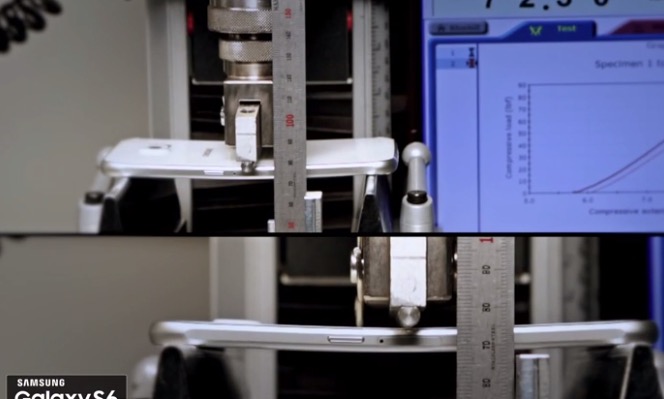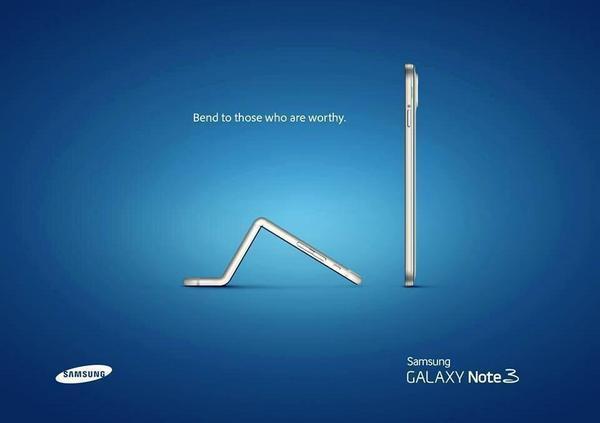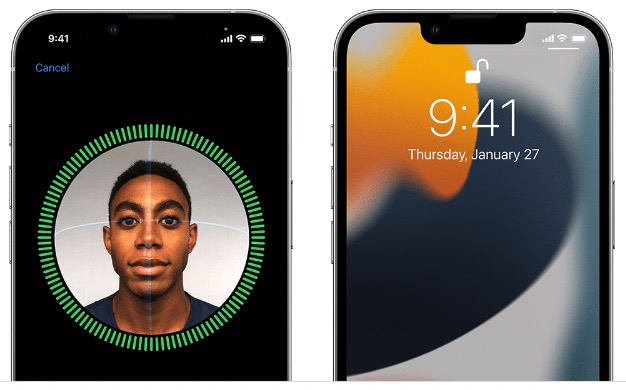
Samsung Fires Back at Galaxy S6 ‘Bendgate’, Says You’re Pocketing It Wrong [VIDEO]
Last week SquareTrade put the iPhone 6 Plus against Samsung’s new Galaxy S6 Edge in bend tests to reveal the latter bent more easily compared to Apple’s larger smartphone.

Samsung has now responded to SquareTrade’s tests on its Samsung Tomorrow blog, to say SquareTrade failed to test both sides of the Galaxy S6 smartphones, noting the backside is actually stronger and that this “may mislead consumers about the entire durability of smartphones”:
…this test does not show the strength of the back side. Some smartphones have different durability in each the front and back sides respectively. SquareTrade has only tested the front side, which may mislead consumers about the entire durability of smartphones.
The company also notes their phones are put under “rigourous high-quality validation tests” before they are shipped and that “we are confident that all our smartphones are not bendable under daily usage.” This similarly echoes Apple’s own statement on iPhone 6 ‘bendgate’, when the company said “With normal use a bend in iPhone is extremely rare.”
With Samsung (and HTC) dealing with these so-called bend tests, it sure does make their former jabs at Apple’s ‘bend gate’ look silly:
Curved. Not bent. #GALAXYNoteEdge pic.twitter.com/OTPIYlI07f
— Samsung Mobile (@SamsungMobile) September 25, 2014
You may recall Consumer Reports’ independent tests stated the iPhone 6 bent under 70 pounds of pressure. Samsung references pencils as examples of strength in their write up and notes the “normal force” of a person’s presses on their back pocket at 66 pounds. So basically they are saying the iPhone 6 is able to resist beyond normal force from someone’s junk in the trunk too, right? Thanks Sammy!
Check out Samsung’s video below of their own tests:
The bottom line is with thin aluminum phones, if you’re using them normally they should not bend. But if you try to bend them with extreme force on purpose, they will give in—because PHYSICS! You can bet Consumer Reports has already started conducting their own tests and will reveal them soon enough.



